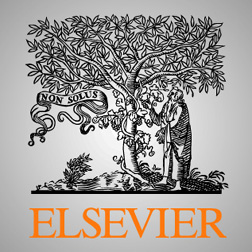حسابرسی انسجام عمومی در داده های ابری مشترک و پویا

| عنوان فارسی مقاله: | حسابرسی انسجام عمومی در داده های ابری مشترک و پویا |
| عنوان انگلیسی مقاله: | Public integrity auditing for shared dynamic cloud data |
|
|
|
| مشخصات مقاله انگلیسی (PDF) | |
| سال انتشار | 2018 |
| تعداد صفحات مقاله انگلیسی | 11 |
| رشته های مرتبط با این مقاله | مهندسی فناوری اطلاعات |
| گروه | علوم كامپيوتر و فناوری اطلاعات |
| گرایش های مرتبط با این مقاله | شبکه های کامپیوتری و سیستم های اطلاعاتی و فناوری اطلاعات و فناوری و مدیریت خدمات و توسعه فناوری اطلاعات |
| چاپ شده در مجله (ژورنال) | الزویر Elsevier |
| کلمات کلیدی | محاسبه ابر، حسابرسی انسجام عمومی، تعهد برداری، امضا حلقه ای، پروتکل تطابق کلید گروهی |
| ارائه شده از دانشگاه | دانشگاه کارلوس سوم، مادرید، اسپانیا |
| رفرنس | دارد ✓ |
| کد محصول | F1192 |
| نشریه | الزویر Elsevier |
| مشخصات و وضعیت ترجمه فارسی این مقاله (Word) | |
| وضعیت ترجمه | انجام شده و آماده دانلود |
| تعداد صفحات ترجمه تایپ شده با فرمت ورد با قابلیت ویرایش | 17 |
| ترجمه عناوین تصاویر و جداول | ترجمه شده ✓ |
| ترجمه متون داخل تصاویر | ترجمه نشده ☓ |
| ترجمه متون داخل جداول | ترجمه نشده ☓ |
| درج تصاویر در فایل ترجمه | درج شده ✓ |
| درج جداول در فایل ترجمه | درج شده ✓ |
| منابع داخل متن | درج شده ✓ |
| کیفیت ترجمه | کیفیت ترجمه این مقاله خوبمیباشد |
| فهرست مطالب |
|
فهرست مقاله: چکیده |
| بخشی از ترجمه |
|
چکیده
بخشی از ترجمه فارسی مقاله: ۱-مقدمه |
| بخشی از مقاله انگلیسی |
|
بخشی از مقاله انگلیسی: ۱٫ Introduction Cloud computing can be defined as a network based computing which provides shared processing data & resources to its user when required. As per NIST, it is a model which enables pervasive, on-demand access to resources being shared that can be rapidly provisioned & released with minimum management effort [29]. It provides a user various capabilities for storing their data at the cloud server & processing it when required. This motivates organizations to outsource their data to an external storage server & improve the storage constraints of local devices, and enables them g researched nowadays. It provides various services to its users. Among them, one of the salient service offered is cloud storage which makes data outsourcing a rising trend. But the major concern associated is the integrity and seclusion of outsourced data. Users require their data to be secure from any modification or unauthorized access. Therefore someway to verify whether the data is intact or not, without retrieving, should exist. This boosts the need of secure remote data auditing. This paper proposes an auditing scheme based on vector commitment, identity based ring signature and group key agreement protocol, emanated on bilinear pairing. An experimental analysis of the proposed scheme, later in the end, shows that when compared with its pertinent schemes, the proposed scheme is also efficient. to have more focus on their core competencies. Cloud user can access the data anytime, when required, from any part of the world but in some cases like hardware failure etc. the server may return an invalid result. Thus data integrity becomes the biggest concern for the cloud users as they no longer have a physical control over their outsourced data. Therefore to assure whether the data is secure or not, a way to verify its integrity and accessibility must exist for the users. Some solutions have been put forward for assuring the integrity & availability of data stored at a faraway server. Authors in the references [2], [28], [10], [24], [25], [35], [37] and [32] proposes dynamic scheme which focuses on instances where only the owner can modify the stored data. Applications [19], [20] and [21], where cloud assistance is used as a cooperation platform, multiple group users shares the code and can access, revise and run it anytime anywhere. Such type of collaborative network makes remote auditing schemes impracticable where only the data owner can modify the data. It will cause a lot of computation and communication overhead to data owner and are inappropriate for him. If integrity verification can be done by person other than data owner, that is, by third party auditor, then the scheme is publicly verifiable. The scheme in [38] designs polynomial authentication tags and uses proxy tag update technique to support public auditing but the data confidentiality of group users is not considered. This means that the scheme supports data update & integrity checking for plaintext, not for cipher text. Yet no solution addresses the issue of public integrity checking with group user modification. The dearth of these schemes prompts us to propose a reliable as well as an efficient way for remote data auditing. To the end, a construction is proposed which applies vector commitment over the database and supports group data encryption & decryption during its modification using group key agreement protocol [36]. Identity based ring signatures [39] are used to protect the anonymity of the signer. |



